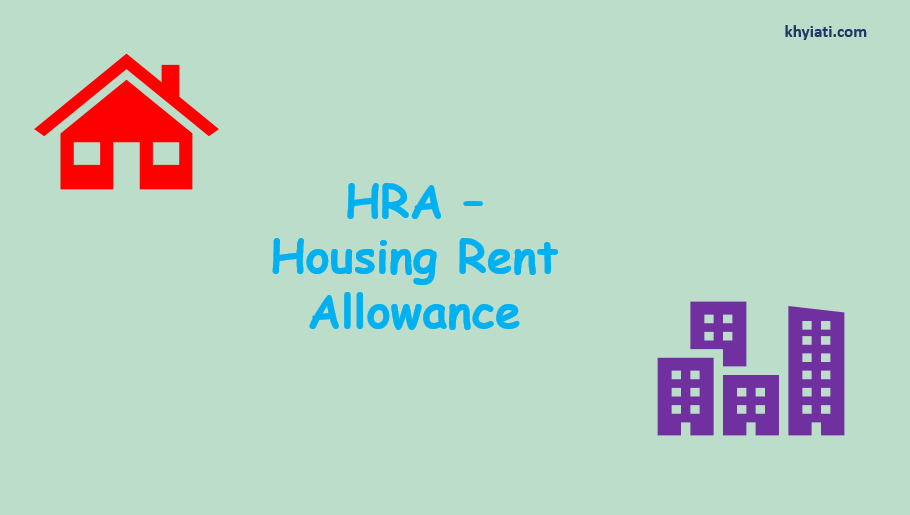HRA stands for housing rent allowance. It the allowance which an employer provides to an employee if the employee lives in a rented flat/house. However, by default, it is reflected in the salary structure of the salaried person. Thus, for a person having his own house, this is a taxable income. However, for a person living on rent this is fully/partially tax exempt depending on the basic salary.
Thus, the main factors that are considered while calculating housing rent allowance are your salary, the one paid by your employer, the rent that you pay and the city of your stay (metro/non-metro).
For salaried individual, it is calculated under section 10 (13A) of the Income Tax Act as per rule 2A of Income Tax rules.
Deductions on HRA:
As per the Income tax rule, for calculating housing rent allowance, the least of the following three components is taken into consideration –
- Actual HRA received by the employer
- 50% of the basic salary for a metro location.
- 40% of the basic salary for a non-metro location.
- Rent paid minus 10% of basic salary
How do you claim your HRA?
If you live on a rented flat/house and need a tax exemption, you need to submit the rent receipt. The rent receipt will have the amount that you pay for your stay. In case, your rent is exceeding 1, 00,000 INR per year, then you need to furnish the PAN card details of your owner.

HRA Calculation:
We will calculate it based on the condition provided in Deductions on HRA.
So, let us assume that an employee is receiving 50,000 INR of basic salary and is residing in a non-metro city of Hyderabad. Rent paid is 20,000 INR.
1.HRA provided by the employer is 25,000 INR.
2.Hyderabad is a non-metro city, so HRA on basic will be: 20,000 INR.
3.Rent paid –10% of basic = 20,000 –5,000 = 15,000 INR.
As per the rules, we must consider the lowest amount, which is 15,000 INR, that would be HRA exempt.
Thus, the employee will be taxable on the remaining amount i.e. 25,000 –15,000 = 10,000 INR.
Case studies:
Case 1:
Suppose, you have purchased a house and have a taken a home loan, but you are still living on a rented flat/house –you can still apply for tax exemption under housing rent allowance. In this case, your purchased home and rented home should be in two cities. If they are on the same city, you must show that your purchased home is very far from your place of work. However, you need to provide sufficient proof to prove your case.
Case 2:
If you are staying with your parents in their house, you will be able to take the benefits of the housing rent allowance. All you have to do is to get a rent agreement that you are paying a certain amount to your parents for your stay. Then, you can transfer the amount to them monthly.
Case 3:
If you are staying with your spouse and the house is on your spouse name –you are not eligible for any housing rent allowance tax exemption in this case.
What if I miss to file the HRA with my employer?
If you miss the deadline to submit the proof for housing rent allowance exemption, you can still claim it while filing your tax returns. You will receive the exempted amount as refund.
More HRA facts:
a. If your city of residence and the place of work is different, housing rent allowance will be considered on the city of residence.
b. If you and your spouse are both working, you both can apply for the housing rent allowance exemption on the same rented flat/house, provided there is no duplication.
c. Self-employed individuals cannot claim for housing rent allowance exemption under the same section as the salaried individual. For them, 80GG of the Income Tax Act is applicable.
The above facts are enough for understanding and calculating the housing rent allowance. This will help you understand your salary structure much better and save taxes. Happy savings!!!

Leave a Reply